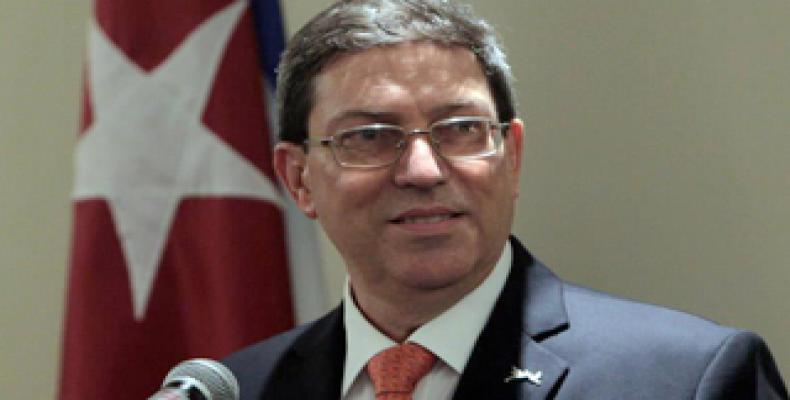Havana, September 16 (RHC)-- Cuban Foreign Minister Bruno Rodríguez presented Wednesday in Havana the annual Cuban report on the damages inflicted on the Cuban people and nation by the U.S. blockade.
The Cuban report is related to the draft resolution entitled: “Necessity of ending the economic, commercial and financial embargo imposed by the United States of America against Cuba.”
After detailing the serious damage caused by the U.S. blockade over the last 12 months, economically and socially, the Cuban foreign minister stated that the humanitarian impact of the blockade can not just be measured in cold figures. He insisted that the blockade constitutes a systematic, massive violation of the human rights of the entire Cuban people.
Since 1992, the United Nations General Assembly has passed a total of 23 annual resolutions, calling on the United States to put an end to the arbitrary policy towards Cuba. In the latest such resolution, passed on October 28th, 2014, the UN General Assembly urged the international community to maintain the same attitude for as long as the blockade policy is still in place.
As a recent example of the human damage caused by the U.S. policy, Foreign Minister Bruno Rodríguez mentioned the situation in the oncology service of several Cuban hospitals, where many patients cannot properly receive radiation therapy or other cancer treatment in time because, under the blockade regulations, Cuba is prevented from acquiring these and other pertinent health-related equipment and medication.
In another part of the press conference, the Cuban foreign minister referred to the upcoming visit to Cuba of Pope Francis. He said that the Cuban government and people have joined forces and efforts to make this a memorable event.
He stressed that the Cuban authorities and people will offer the Bishop of Rome a warm welcome and show him respect, appreciation and hospitality.
In reference to the executive decisions adopted by U.S. President Barack Obama regarding Cuba, the Cuban foreign minister said that although some aspects of bilateral relations have been changed, the over 50 year-old blockade policy remains intact.


